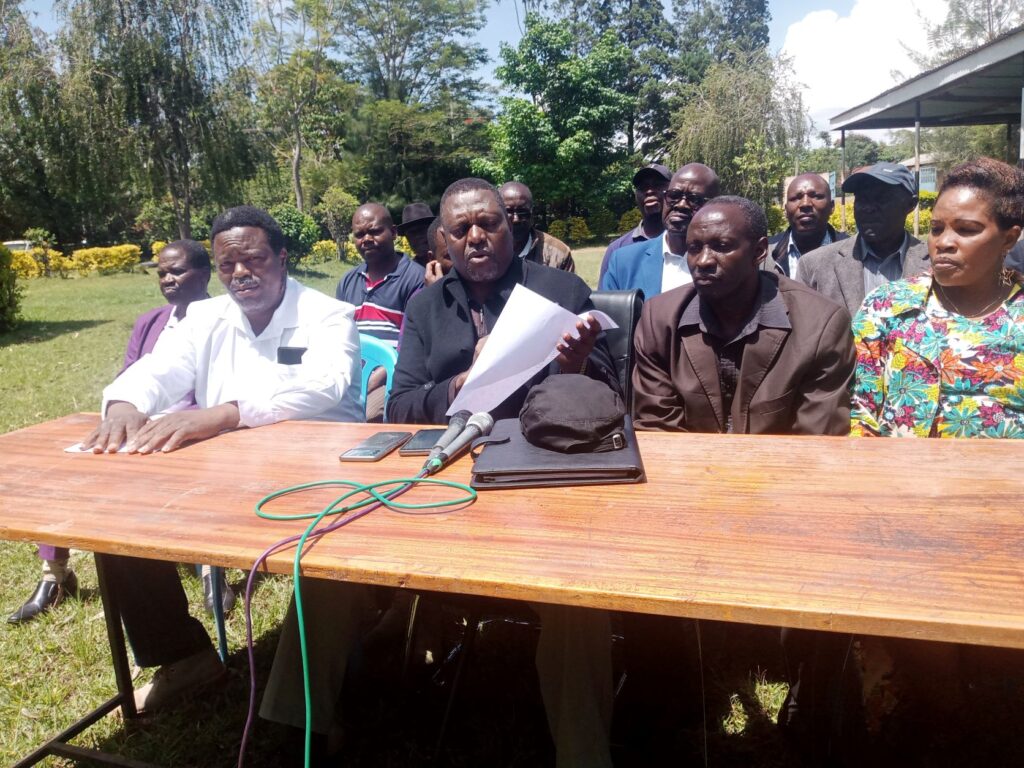
By Matiko Bohoko
Cynics have always wondered what always itches the Abakuria community to incessantly agitate for separation from their neighbours, the Luos in Migori county.
Time and again, the community has cried foul about suffocation in both resource allocation and sharing of elective positions between them and their counterparts.
In about 2020, when the Building Bridges Initiative(BBI) task force went around the country collating views on the nine agenda points, the community cried the loudest about creating their own county.
Their last presentation being at the Laico Regency Hotel in February 2020, where they engaged the task force for a half a day enumerating reasons why they feel frustrated and want out of Migori county.
The BBI recommendations, albeit not giving much attention to the community’s plea, acknowledged the situation with which the community finds itself in; operating as a minority amidst a predominantly majority ethnic group.
The task force report agreed with matters canvassed through a community memorandum but fell short of recommending remedial measures. A fortnight ago, the Kuria East Member of Parliament Mr. Kitayama Marwa opened a pandoras box by presenting to the speaker of the National Assembly, a bill seeking to amend the constitution to increasing the number of counties from 47 to 52.
Mr. Kitayama sought to amend the constitution through parliament, invoking article 188 of the constitution which avers that boundaries of counties may be altered only by a resolution; recommended by an independent commission set up for that purpose by parliament and passed by both the houses of parliament with a support of at least two-thirds of all the members.
He listed four other counties to be created alongside Kuria as; Teso,Mwingi, Mt. Elgon and East Pokot.The pronouncement seemed to have struck the hornets nest; several other communities such as Kisii (Gucha), Suba (Homa bay), Somalis ( Ijara) and Tavetas( Taita Taveta)have shown interest in joining the bandwagon to also demand for creation of their own counties.
Notwithstanding the political razzmatazz ignited by Kitayamas bill, little seem to be known as to why the Abakuria minorities in Migori have always felt oppressed and strongly desire to secede.
Sampling a collage of reasons as presented to various commissions delimiting boundaries including constituencies, one gets a feeling of a scenario akin to that of Igbos of Biafra in Nigeria whose independence was short-lived.
The Igbos briefly separated from the mainstream Nigeria for three years ( 1967-1970) before they were overrun and subdued in the Biafra war. In 1992 during the first multi- party election campaigns, the late President Daniel Moi pronounced Kuria a district ostensibly separating it from the larger Migori district.
A year later in 1993, president Moi again announced the establishment of Kehancha Municipality, thenceforth completely alienating Abakuria community from their neighbours, the Luos.
In the mind of Umukuria, that marked their first independence .Mois successive pronouncements had been orchestrated by the fact that Abakuria had stood with him in the 1992 multiparty general elections where the entire Nyanza region voted for the opposition except Kuria constituency.
For about two decades, the community flourished in both economic and political self rule. They had two districts, two constituencies, 24 elective wards where they elected their own mayor and chairmen of committees.
They curved a healthy economic regime borne from an avalanche of agricultural produce and cross border trade.This and other gains experienced after Abakurias “independence” (1992) sadly collapsed with the introduction of devolved governments in 2013.
The 2010 constitution grouped Abakuria in Migori county together with Luos, therefore ending their success story as an independent community. This misplacement has created unending ethic antagonism and competition amongst the two communities.
Abakuria lament that during and after every election year, they are viewed by their neighbours as spoilers in the country’s political arrangement.
The two communities have never voted together since the introduction of multi party politics. Their relationship has been an on and off affair , with Umukuria more often being on the losing side.It’s against this backdrop that Abakuria complain of missing out in meaningful elective positions where they end up resorting to relying on paltry tokenism offered to them through political blindfolding and blackmail.
Resources at the county have also been distributed unfairly, through arm-twisting and trickery. There is never a quid pro quo arrangement nor a pro-rata matrix in allocation of county resources.
In their quest for own county, Abakuria finds solace in article 174 of the constitution which defines objects of devolution as; to give powers of self governance to People, recognise the right of communities to manage their own affairs, protect and promote the interests and rights of minorities and marginalised communities.
The constitution encourages the promotion of social and economic development, provision of proximate, easily accessible services and facilitation of decentralisation of state organs, their functions and services among others.
Although sceptics have dismissed the idea of creation of more counties as untenable, Abakuria are optimistic that the constitution provides a clear road map to how county boundaries can be altered.
They find remedy in article 188 of the COK which clearly states that boundaries of counties may be altered only by a resolution; recommended by an independent commission set up for that purpose by parliament and passed by both houses of parliament with support of at least two- thirds of the members of the assemblies.
The community is also hopeful that any commission set up for that purpose will find their population and demographic trends, human and physical infrastructure, historical and cultural ties and views of communities involved favourable to them.
(Matiko Bohoko is a veteran journalist and political analyst based in Migori.)

